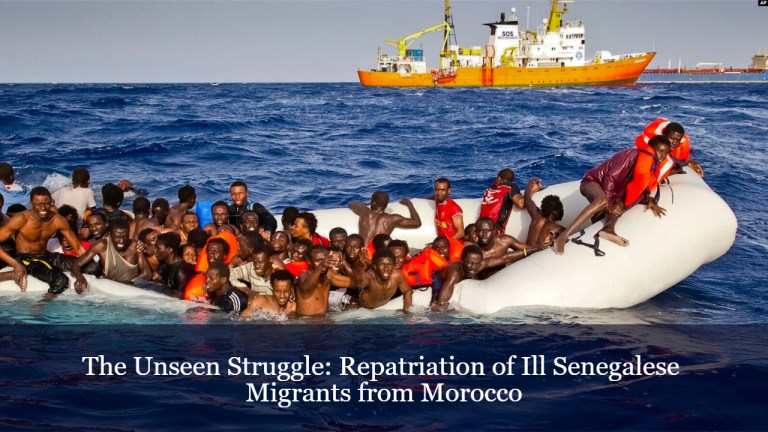In recent weeks, Senegal has taken steps to repatriate 50 of its citizens who were intercepted in Morocco during their attempts to migrate to Europe. The group is part of a larger number of 450 Senegalese migrants apprehended in Morocco.
The decision for immediate repatriation was made due to the concerning health conditions of the 50 individuals, some of whom were visibly in poor health. The remaining 400 migrants are expected to be transported back home by bus from Morocco in the upcoming days.
Senegal’s Minister of Foreign Affairs, Annette Seck, clarified that the repatriated migrants were evacuated by air due to their deteriorating health conditions, with 19 of them being hospitalized prior to the journey. One individual, still critically ill, was left in the hospital for further treatment.
The Senegalese government has reported that between June 28 and July 9, they rescued 260 of their citizens in distress within Moroccan territorial waters. Despite these efforts, the dangerous journey claimed lives, with eight people dying when their canoe overturned off the coast of Saint-Louis, Senegal’s northernmost town.
The route these migrants were attempting to navigate, toward the Canaries, is known as the most dangerous of all routes taken by African migrants trying to reach Europe. The journey involves days of sailing across hazardous currents in motorized open canoes, often unseaworthy, overloaded, and lacking in basic necessities such as water. The willingness of these migrants to undertake such extreme risks underscores the desperation and determination in their attempts to reach Europe.
The Senegalese government has taken noteworthy steps in ensuring the safety and well-being of its citizens. However, the large number of migrants and the perilous nature of their journey underscore the need for more comprehensive solutions. Stricter immigration policies, coupled with increased support for economic development and stability in home countries, may prove instrumental in reducing the number of individuals compelled to undertake such dangerous journeys in the future.
In the face of such challenges, it is crucial to remember that every individual, irrespective of their legal status, is entitled to basic human rights. The issue of migration is not just about borders, policies, and national security; it is about people in search of safety, opportunities, and a better life. It is a test of our collective humanity and our commitment to uphold the dignity and rights of every human being.
